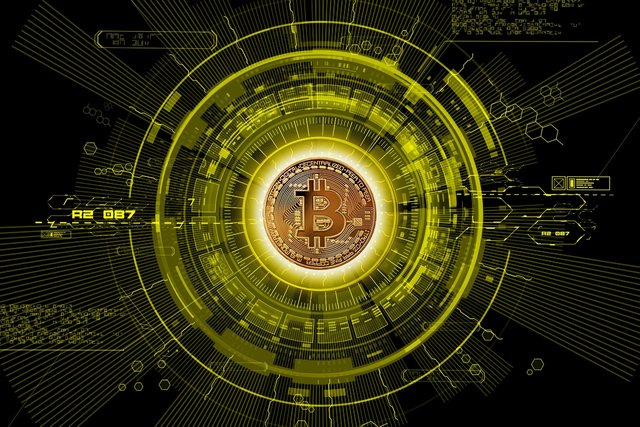in the vast and often unfathomable ocean of modern technology, few inventions have shaken the foundations of our world like cryptocurrencies. Born from the dream of a world without intermediaries, these digital currencies have rapidly gained traction, attracting investors, innovators, and, inevitably, the watchful eye of the global legal system. But what happens when the aspiration for freedom meets the "inevitable need for order"? In this delicate tension between progress and protection, cryptocurrency law emerges—a field as new as it is complex.

Imagine a world where every transaction is an act of faith, recorded on a digital ledger that no one can corrupt, yet few truly understand. This is the allure of cryptocurrencies: a modern alchemy that turns code into value. However, within this digital magic lies its dark side. Without physical borders or central controls, cryptocurrencies have swiftly conquered the world, but they've done so in a territory still uncharted by traditional law.
Different nations have reacted to this phenomenon in different ways. Some, like Switzerland, have embraced cryptocurrencies with open arms, seeing them as an opportunity for economic innovation. Others, like China, have erected barriers, fearing the instability these currencies can bring. [CoinDesk] (https://www.coindesk.com/consensus-magazine/2023/01/23/the-worlds-best-crypto-policies-how-they-do-it-in-37-nations/) tells us how these regulatory differences create a global mosaic of laws and regulations, where every move can be a risky one. It’s a chess game, where each legal move can determine the future not only of companies and investors but of the entire digital ecosystem.
But the journey to a new financial era is not without its perils. Along the way, digital travelers encounter bandits and fraudsters, hiding in the shadows of code. Hack attacks become raids on digital vaults, stealing not only wealth but also dreams and hopes. Data protection becomes the new armor of the modern knight, essential for safeguarding digital identities in a world where anonymity can be both a blessing and a curse. As [Forbes] (https://www.forbes.com/sites/digital-assets/article/crypto-security-overview/) emphasizes, "cryptocurrency security is one of the most critical issues, with billions of dollars stolen each year." The law, in this new battle, becomes the sharp sword that must cut through the chaos, setting rules and protecting the vulnerable.

In this epic struggle between good and evil, mercenaries are not lacking, seeking to exploit the system for their own ends. Money laundering and fraud have become the new crimes of our digital age, with criminals taking advantage of anonymity to hide their illicit profits. But not all is lost. Regulators are sharpening their weapons, trying to balance privacy with the need for justice. As noted by the [World Economic Forum] (https://www.weforum.org/agenda/2024/05/global-cryptocurrency-regulations-changing/) , "cryptocurrencies are being used to hide traces of dirty money," but efforts to combat these crimes are growing in strength and sophistication.
And then there are NFTs, the new treasures of the digital age. For some, they are works of art, unique pieces that challenge traditional property laws. For others, they are simply a passing trend, destined to fade away with time. But the truth is that NFTs have raised deep questions about the meaning of ownership in the digital era. Who truly owns a digital artwork? And what does it mean to own something that can be infinitely replicated with a single click? The [Verge] (https://www.theverge.com/23139793/nft-crypto-copyright-ownership-primer-cornell-ic3) poses critical questions on these topics, and the law has yet to provide definitive answers.

Justice, in this new world, is called upon to respond to unprecedented challenges. Courts, like knights of the law, are drawing new legal boundaries, setting precedents that could last for decades. [Bloomberg Law] (https://www.bloomberg.com/news/articles/2023-05-05/new-york-ag-proposes-landmark-crypto-law-citing-dysfunction) highlights how these cases are already beginning to shape the future of cryptocurrency law. But it is not a task that can be done alone. International cooperation is essential because, as the Harvard Law Review observes, "a coordinated approach among nations will be crucial to establishing a consistent regulatory framework that can support the global adoption of cryptocurrencies."
So, as we delve deeper into this new digital world, we must remember that every innovation brings with it new responsibilities. Cryptocurrencies and NFTs are not just financial instruments; they are manifestations of our desire for freedom and creativity. But with this freedom comes the need for a new kind of justice, one that can protect without stifling, guide without restraining. In this delicate balance between progress and protection lies the true challenge of our time. And perhaps the hidden moral in all of this is that the law, like cryptocurrencies themselves, must continue to evolve, adapt, and, above all, innovate to keep the flame of justice alive in a constantly changing world.
Credits: all images downloaded with a free license by [Pixabay] (https://pixabay.com/it/)